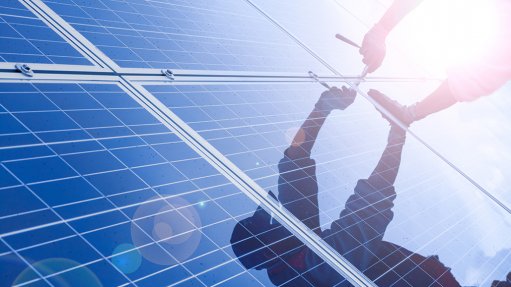Unbalanced trade heightens inequality – Unctad
Trade under hyperglobalisation has failed to foster broad-base structural change in developing countries and has contributed to increased worldwide inequality, the United Nations Conference on Trade and Development (Unctad) says.
Its Trade and Development Report for 2018, entitled ‘Power, Platforms and the Free Trade Delusion’, which was launched, in Johannesburg, on Wednesday by Unctad globalisation and development strategies senior economist Dr Diana Barrowclough, also expressed concern that the kind of policies that have helped China to successfully diversify and upgrade are now being signalled out for retaliatory action by advanced countries whose transnational corporations see such policies as a threat to their bottom line.
Barrowclough said that instead of viewing China as a “pariah”, other countries can draw much value from the successful implementation of these domestic policies.
Recent heightened anxiety in developed countries, one of the fallouts of hyperglobalisation, has resulted in questioning of the official story of the shared benefits of trade.
These concerns add to the longstanding concerns among developing countries about the workings of the internal trading system.
STRUCTURAL CHANGE
With recent debates on globalisation noting the growing importance of developing countries in international trade, inclusive of trade with each other, the report indicates that the “rise of the South” is primarily an East/South-East Asian story.
The rapid growth of exports from the first-tier of newly industrialised economies in Asia and subsequently from China was associated with a reduction in developed countries’ share in world exports, from nearly three-quarters of gross mechanise exports in 1986 to just over one-half in 2016.
China also stands out among its Brazil, Russia, India, China and South Africa (Brics) partners. Excluding China, global output rose from 3.7% in 1990 to about 7.4% in 2016, which is an increase, but not a highly notable one. In contrast, including China, the share of Brics’ growth increased from 5.4% to 22.2% during this period.
As more developing countries have come to rely on global markets, they have also become more dependent on a narrow range of exports: hyperspecialisation has become a feature of the trading system under hyperglobalisation, the report finds.
The report puts this down to the spread of global value chains and the difficulties of climbing the development ladder in absence of a strong “developmental state”. Since 1995, 18 of 27 developing countries for which Unctad has data have experienced increases in the share of extractive industries in export value added.
However, with the notable exception of China, the spread of global value chains into manufacturing and service activities has been in line with a declining share of domestic value added in gross exports.
The report has not found much evidence of upgrading in these chains, save for exceptions once more in East Asia.
Thus far, the growing demand of China, which helped spur further growth in many developing countries from the start of the millennium, has not been found to trigger significant positive changes in the export structure of other developing countries.
FOSTERING INEQUALITY
Trade is dominated by big firms, increasing since the mid-1990s. Among exporting firms, the top 1% accounted on average for $6 out of every $10 of exports. On some estimates, on average, only ten firms account for $4 out of every $10 earned abroad.
In this monopoly climate, new entrants and smaller exporters have a low survival rate, with three out of four firms dropping out of the export business after two years and with firms in developing countries faring worse than in developed countries.
The worsening of trade-related inequality is a reflection of a combination of elevating profits from intangible assets, higher incomes creamed off by headquarters and squeezing costs in production.
The rapid growth of products of the top 2 000 firms is seen as a major force pushing down the global labour income share.
Hollowing out (by offshoring) is well known and acknowledged, with the report also tracking a squeezing of income shares of low and medium skilled workers in production stages of value chains in developing countries, as the share of value added in fabrication has declined. China is a notable exception to this.
Further, a number of these big international firms engaged in “phantom trade”, invoicing the movement of intangible assets and their related income flow to low-tax or no-tax jurisdictions.
POLICY SPACE
The report champions a more inclusive trade and development narrative and agenda. It concludes that the problem is not trade itself, but how it is managed, with the current win-win world approach often not accounting for the general conditions required for broadly shared benefits, and denying the realities of this.
Policy space has been squeezed by free trade agreements, with increasing intrusive provisions which reflect the hand of large exporters in non-transparent negotiation process. According to the report, such agreements are increasingly becoming a mechanism for promoting rent-seeking by large exporting firms. Notably, the report indicates that South-South trade agreements are less susceptible to such abuses of corporate power.
Comments
Press Office
Announcements
What's On
Subscribe to improve your user experience...
Option 1 (equivalent of R125 a month):
Receive a weekly copy of Creamer Media's Engineering News & Mining Weekly magazine
(print copy for those in South Africa and e-magazine for those outside of South Africa)
Receive daily email newsletters
Access to full search results
Access archive of magazine back copies
Access to Projects in Progress
Access to ONE Research Report of your choice in PDF format
Option 2 (equivalent of R375 a month):
All benefits from Option 1
PLUS
Access to Creamer Media's Research Channel Africa for ALL Research Reports, in PDF format, on various industrial and mining sectors
including Electricity; Water; Energy Transition; Hydrogen; Roads, Rail and Ports; Coal; Gold; Platinum; Battery Metals; etc.
Already a subscriber?
Forgotten your password?
Receive weekly copy of Creamer Media's Engineering News & Mining Weekly magazine (print copy for those in South Africa and e-magazine for those outside of South Africa)
➕
Recieve daily email newsletters
➕
Access to full search results
➕
Access archive of magazine back copies
➕
Access to Projects in Progress
➕
Access to ONE Research Report of your choice in PDF format
RESEARCH CHANNEL AFRICA
R4500 (equivalent of R375 a month)
SUBSCRIBEAll benefits from Option 1
➕
Access to Creamer Media's Research Channel Africa for ALL Research Reports on various industrial and mining sectors, in PDF format, including on:
Electricity
➕
Water
➕
Energy Transition
➕
Hydrogen
➕
Roads, Rail and Ports
➕
Coal
➕
Gold
➕
Platinum
➕
Battery Metals
➕
etc.
Receive all benefits from Option 1 or Option 2 delivered to numerous people at your company
➕
Multiple User names and Passwords for simultaneous log-ins
➕
Intranet integration access to all in your organisation


















